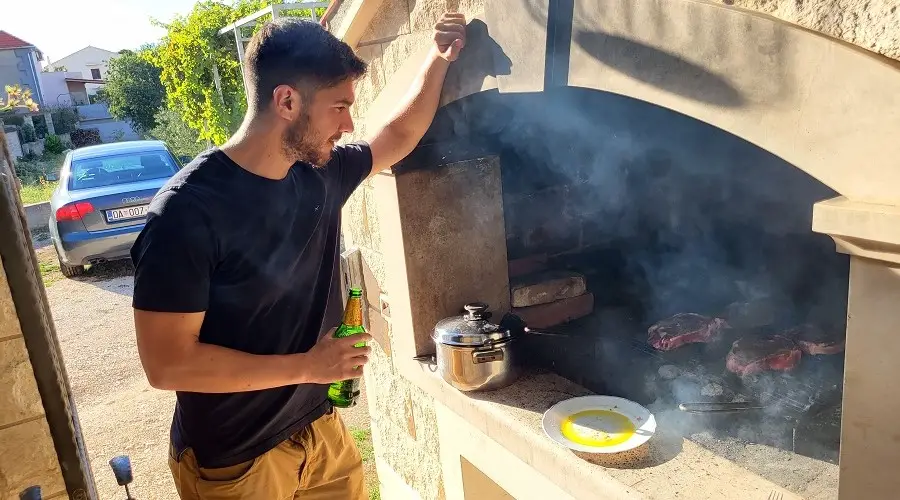My family is from Škabrnja, a town known for its agriculture and classic Dalmatian attitude; you know the one: slow to anger, reasonable in debates, respectful of road rules, and a healthy dose of sarcasm. I was born in Sydney, Australia, and like my father before me, I left the country of my birth for a better life. I’ve been living in Croatia since the World Cup of 2018. I live in Zagreb, where I work for OptimoRoute, a Silicon Valley software company. If you live in a major English-speaking city and ordered something online, chances are you are indirectly using our software.
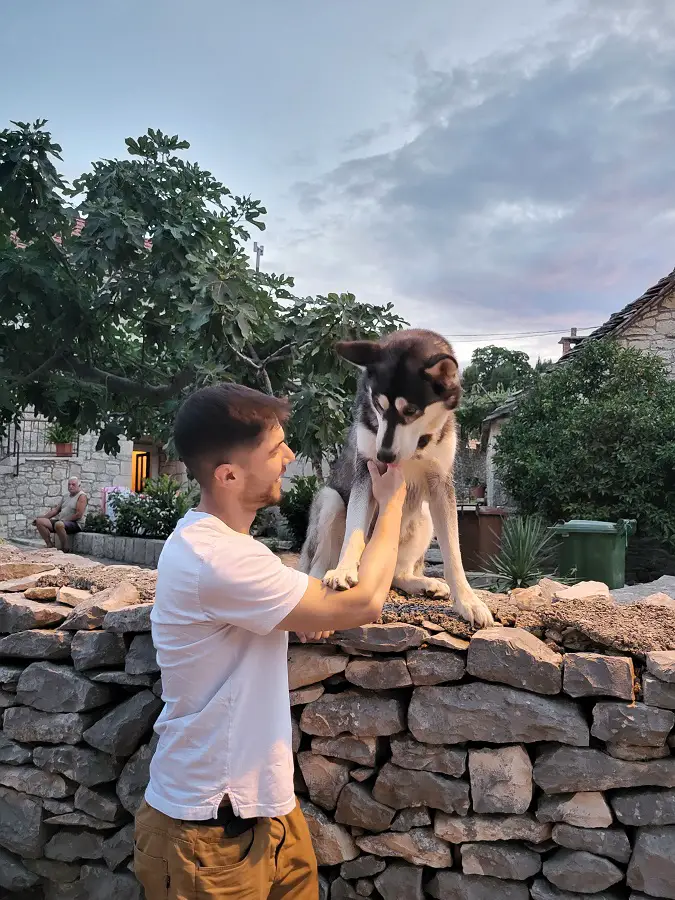
1. You made the switch to Croatia. Tell us a little about the decision process and how long it took for you to get on the plane.
Back in 2012, I visited my godparents in the town of Nin. After an amazing home-cooked meal (My godmother reads this, this will make her day), my godbrother and I enjoyed a night of partying with the locals. Eventually, we ended up listening to a live band playing acoustic versions of Dalmatian hits. His family was all there, late into the night, at a bar that overlooked the beaches of Nin, and all I could think was, “This is a Tuesday for them”
It was then that I realized that his family has something no one in Sydney will ever have. If they could have this life, why couldn’t I do the same?
I then started looking for other returnees to Croatia who came from Australia. The ones with the best lives were all working remotely for Australian companies. An Australian salary with a Croatian cost of living was the dream. I spent 2 years learning relevant skills, built up a network of contacts in Sydney for remote work, and made this dream a reality.
The Russian World Cup in 2018 was the perfect opportunity to visit Croatia. I saved up a lot of vacation time and left on a reconnaissance trip. In-between matches, I looked up rental properties, interviewed with local tech companies, networking with business owners, everything that I would need to thrive. It was a crash course in living in Croatia.
Not many people have that moment where they know exactly where they need to be. I had this in 2018. I didn’t want to be anywhere else, and I’d do whatever it took to stay.
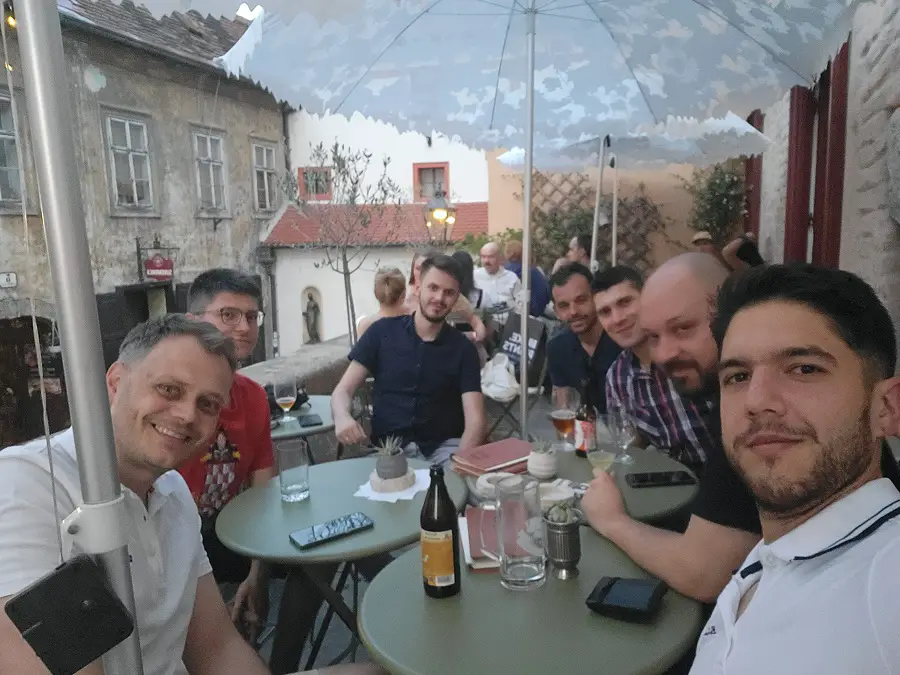
2. What did your family and community back home think of your decision at the time?
Besides my family, I didn’t tell anyone I was going. My rationale was that people who had never made this choice before would only fill me with doubt. I only really opened up to people who were already living in Croatia and a few people that had come back. My family was cautiously optimistic at the time but today are very supportive now that they know that all it takes to make it is to not make too many stupid decisions, be a bit creative with how you earn a living, and a lot of hard work (like it’s any different elsewhere?).
3. Where did you get your information about the realities of Croatia prior to coming?
I researched tech companies in Croatia and became optimistic. I made a bet that there would be at least one company with a need for my skill set. It took a while to get to that coffee with the right CEO, but it paid off. The reality is that it’s difficult to know anything about Croatia without actually living here. If you associate yourself with the right people, ambitious and positive people, you’ll make it.
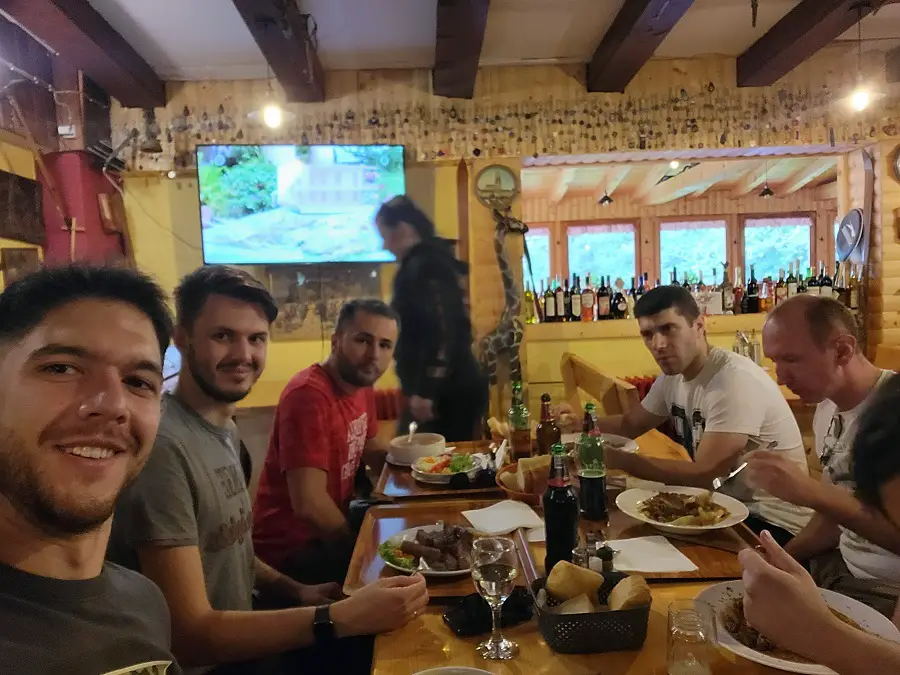
4. What were you most nervous about making the switch? What was your biggest fear, and what was the reality of what you found?
I came to Zagreb in the winter of 2018/2019 from Australia, a place whose winter is considered beach weather in 90% of the rest of the world. It was cold, my Croatian was terrible, and my bank account turned into a countdown to homelessness.
I acted on the one piece of advice trusted people had given to me in Australia: “it’s who you know that counts”. So what do you do when you know absolutely no one in Zagreb? You start doing what Croatians do best, go out for coffee.
Before long, my coffees took me all around the country, and it taught me a very valuable lesson: to get value, you must give value. This 18-month caffeine binge lead me to one of the best job interviews I ever had and resulted in a job with a world-class tech company.
What’s the reality of coming here? With the right group of people, you can really live your dream life. After 4 years, I’ve discovered that if you talk to 1,000 returnees, you’ll learn 1,000 different ways to “make it” in Croatia. But the people who didn’t make it all tended to make the same two mistakes: stubbornness and isolation. If you’re serious about returning, avoid the following:
- Don’t brag about who your parents or relatives are. It never ends well.
- Don’t flash cash from your savings account. It won’t last long.
- Never ever talk about how you’re going to “save” Croatia. Every month there’s a returnee who tries to pull this stunt.
Put your head down, work, be friendly, and very quickly, you’ll see support coming from everyone around you. That’s the reality, be humble and help people. There are very good people here; they just need to be sure you’re genuine.
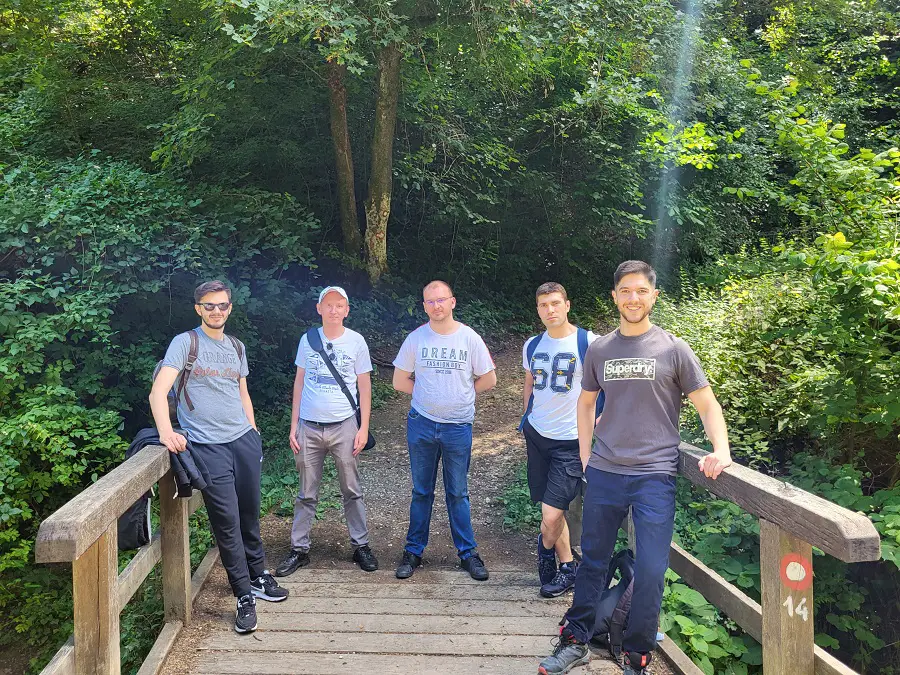
5. Think back to the time before you arrived. What were your perceptions about Croatia, and how were they different from the reality you encountered?
This is no longer pre-war Croatia; it’s not 1991 Croatia, it’s not even 2008 Croatia. This is 2022 Croatia, an EU member state with a passionate but informal entrepreneurial culture. Those on the outside only see the headlines or what’s shown on TV. What they don’t see are the networking events, the tech start-ups, and the company parties. Croatians are very quickly learning how to make high incomes, and their work ethic can be world-class. The people I’m describing are currently a minority, but they love the fact that the world underestimates them. They are constantly looking for like-minded professionals to build new connections with.
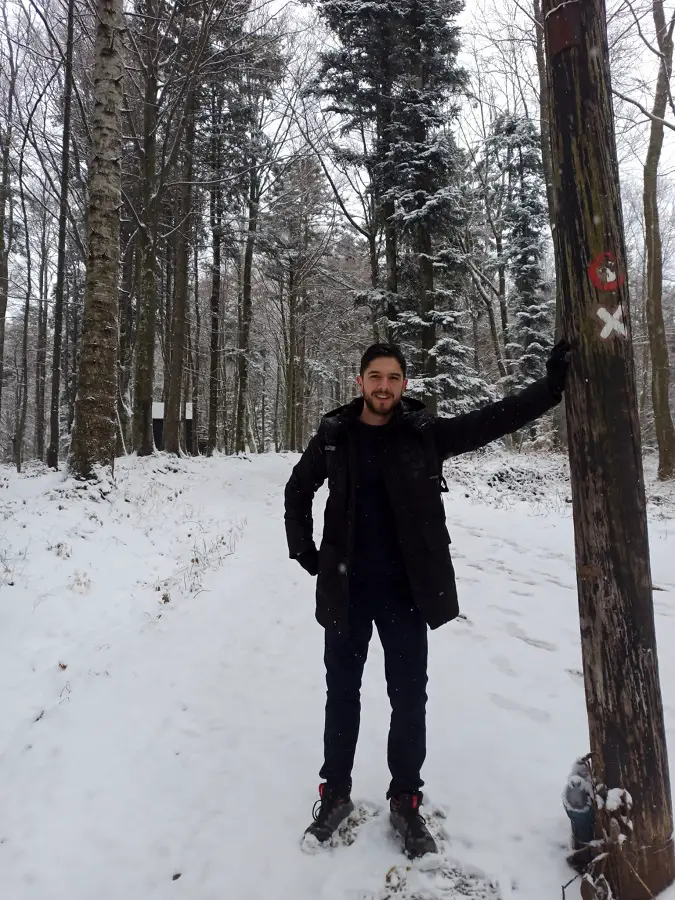
6. You are still here, so obviously, the pros outweigh the cons. Tell us about some of the things that you love about being in Croatia, as well as some of the things you don’t like.
Things that make me love Croatia::
- The nightlife and work opportunities
- Hiking in the mountains, going to secluded beaches
- Other Croatians
Things that give me a headache in Croatia:
- The bureaucracy
- People who drive a BMW in Zagreb
- Other Croatians
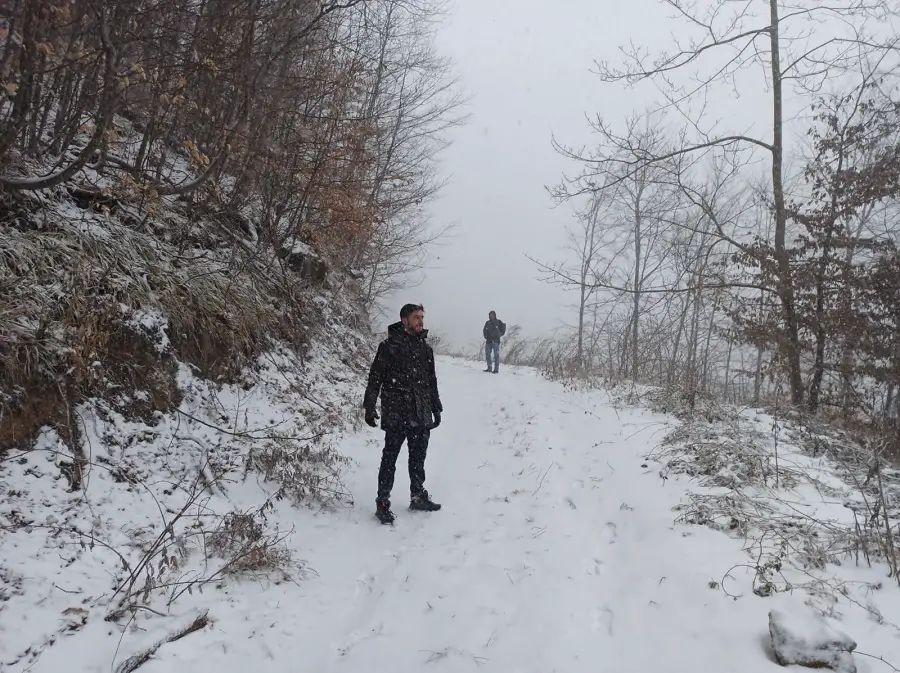
7. What advice do you have for others thinking about making a move from the diaspora?
Talk to other returnees before you make your decision. We all have an online presence, and someone will be able to connect you to someone that can advise you properly. There is no single solution to living here, find someone who came from a similar situation and ask them what they did. The rest is fairly straightforward: get your citizenship in order, be in a profession that can work remotely or be a tradesman, and be ready to rebuild your network from the ground up.
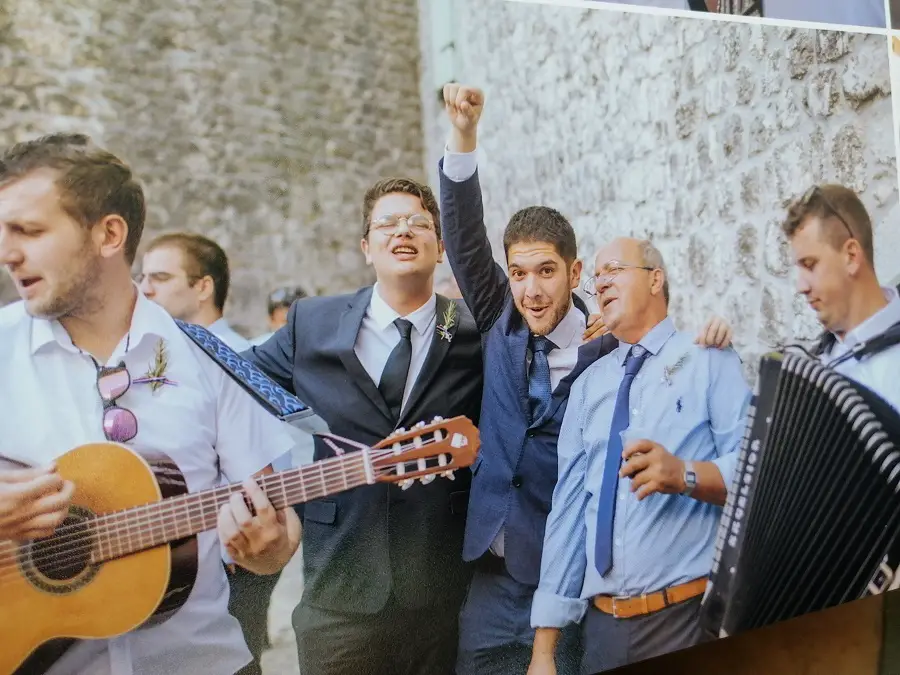
8. How do you think Croatia can better assist those who are looking to return to the Homeland?
We currently live in a sweet spot of Croatian history. Moving to Croatia is perceived to be so difficult that only the people that really want to come to do so. None of the returnees have a boring backstory. If you want to return to Croatia, now is the time you’ll get the most support from other returnees. Purchasing that one-way ticket gets you at least one coffee with absolutely everyone.
But, if we wanted to make this process easier:
- Make it easier for the Croatian diaspora to obtain their citizenship or at least make it easier for them to live here for several years legally
- Make it well known what services the country has to offer. There is a lot of information freely available online that most people don’t know about.
- Give Croatian companies better incentives to network with foreign companies, thus exposing more potential returnees to our economy
- Instill a sense of security in returnee families by publishing and committing to long-term city planning. Let people know where new schools, medical centers, transport links, and housing will be built
There are a million ways to make Croatia better. What’s the worst that can happen in moving here? For me, it was living again in Sydney, a winning lottery ticket for most of the world. I had nothing to lose.
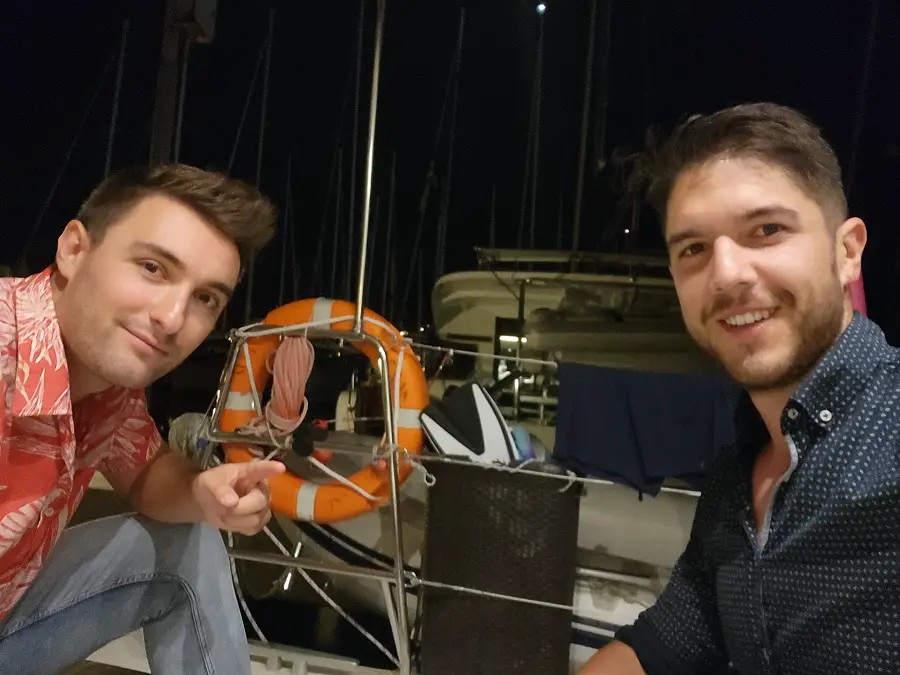
****
Thanks, Andrian!
You can follow more stories in the Croatian Returnee Reflections series in our dedicated TCN section.
Would you like your returnee story – positive or negative – to be featured in this series? Contact paul@total-croatia-news.com Subject Returnee.
****
What’s it like living in Croatia, and where can you get the best survival tips? TCN CEO Paul Bradbury and TCN Editor Lauren Simmonds have teamed up to publish Croatia, a Survival Kit for Foreigners.
Follow Paul Bradbury on LinkedIn.


